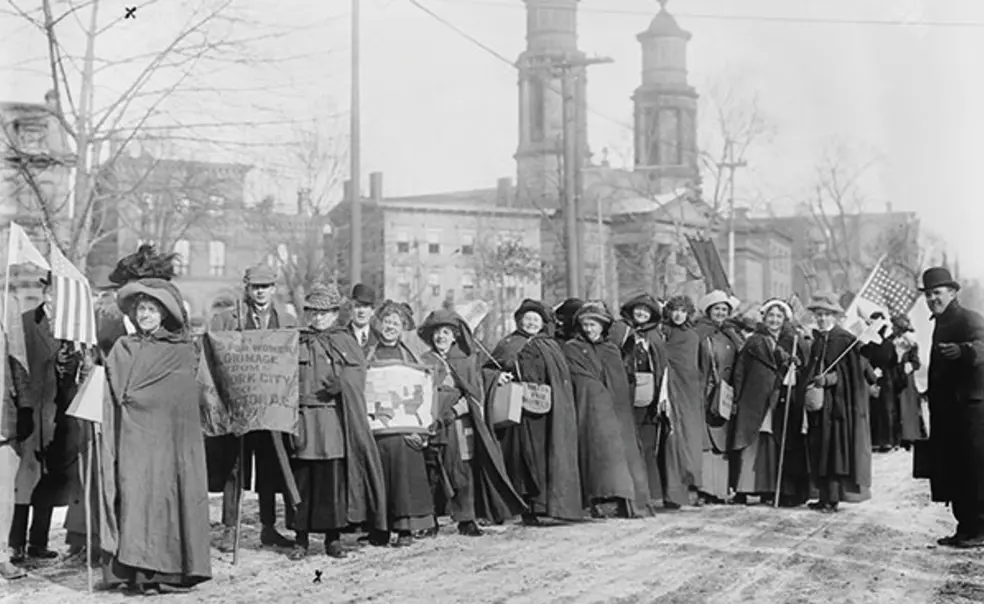The path to women’s suffrage was long and tortuous, and in the winter of 1913, it led through Princeton.
The occasion was Woodrow Wilson’s inauguration in March as 28th president of the United States. Thousands of suffragists converged on the capital, including a small band of marchers who had traveled from New York to Washington on foot. Calling themselves the Army of the Hudson, they braved harsh weather, bad roads, and unruly crowds, including a fusillade of snowballs between Philadelphia and Chester, Pa. Under the command of “General” Rosalie Jones, they entered Princeton Feb. 13 after a grueling 27-mile tramp.
The first suffragist to arrive, Mary Boldt, was surrounded by exuberant students who so manhandled her, The New York Times reported, that she “was crying from anger and fright” when she reached the Princeton Inn. Denouncing such accounts as “yellow journalism,” The Daily Princetonian sought to salvage the student body’s reputation by publishing a statement from Boldt herself: “The pushing and pulling, which was naturally annoying to a degree, was, I am sure, more the product of the number of students in the crowd than the result of a conscious intention of roughness. ... There was nothing out of the way in anything they did.”
But neither was their behavior decorous. Laying siege to the inn, they clamored for speeches, prompting Jones to declare, “We seem to have been making speeches ever since we got here. ... If you are not converted, you never will be.” The New-York Tribune captured the flavor of the evening when it quoted “Colonel” Ida Craft: “There’s only one thing I have against Princeton. ... It isn’t co-educational. (Yells.) You ought to have girls (applause) like Cornell. (Groans and hisses).”
Whether any students were persuaded to join the suffragist cause, as opposed to merely cheering it, is an open question, but the Prince did declare a winner with this headline: “Suffragettes Win Second Battle of Princeton.”
John S. Weeren is founding director of Princeton Writes and a former assistant University archivist.












No responses yet